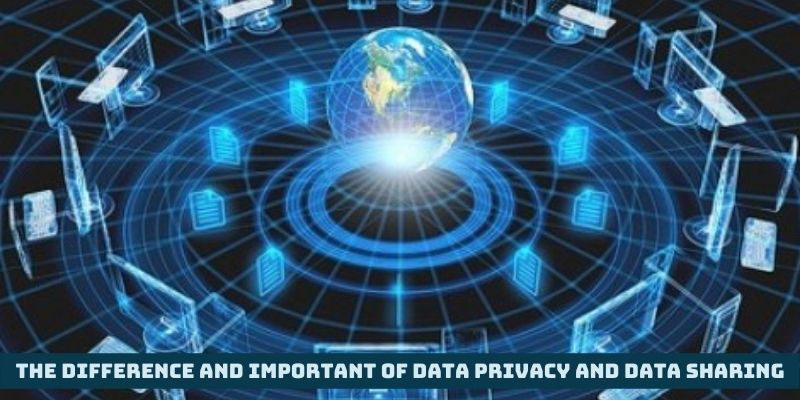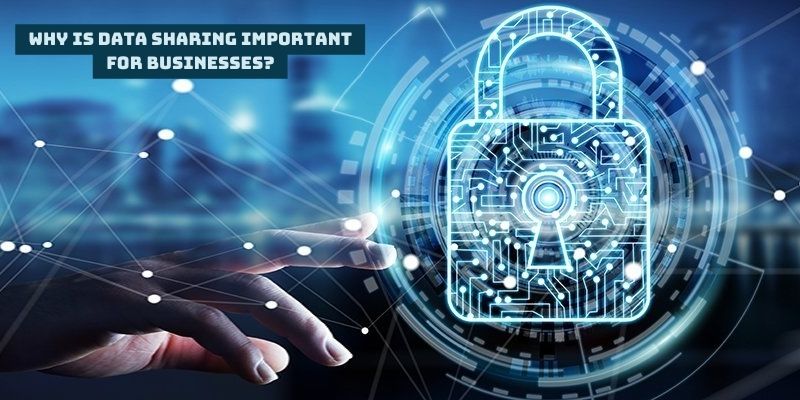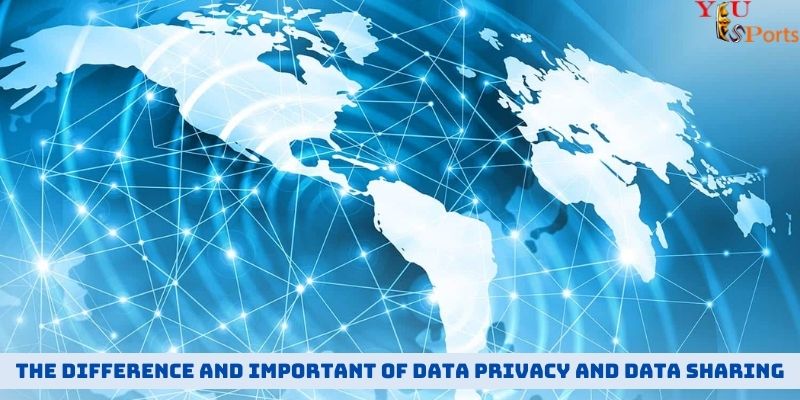The distinction and significance between data privacy and data sharing? Data protection is a subfield of data privacy, also known as information privacy, which deals with the appropriate handling of sensitive data, particularly personal data but also other confidential data, such as certain financial data and intellectual property data, to meet regulatory requirements as well as protecting the confidentiality and immutability of the data.
The Figure below shows the three main components of data protection: traditional data protection (such as backup and restoration copies), data security, and data privacy. Protecting the privacy of sensitive and personal data can be considered as a result of best practices in data protection and security, with the overall goal of assuring the continuous availability and immutability of important business data.
Please be aware that the phrase “data privacy” includes what the European Union (EU) calls “data protection.”
When deciding what digitally stored data can be shared and with whom, security plays a crucial role in both defending the data from external and internal threats. Practically speaking, data privacy concerns components of the control process surrounding exchanging data with third parties, how and where that data is stored, and the particular laws that apply to those processes.
In response to the demands of a specific business or segment of the public, nearly all nations in the world have passed legislation pertaining to data privacy and data sharing.
Making the same data resources available to numerous applications, users, or organizations is known as data sharing. Through the use of technology, procedures, legal frameworks, and cultural considerations, it is possible to support safe data access for several entities without sacrificing data integrity. Data sharing enhances corporate effectiveness and encourages cooperation with partners and suppliers. Part of this process is being aware of the potential and hazards associated with sharing data. In this article, yeuesports.com will discuss the difference and important of data privacy and data sharing.
The difference and important of data privacy and data sharing

Why is Data Privacy important?
Business imperatives provide the key to this puzzle:
- Business Asset Management: A company’s data may be its most valuable asset. In today’s data-driven world, businesses place great value on gathering, distributing, and utilising data about clients or users, particularly through social media. Building trust with customers who naturally demand privacy as a human right requires businesses to be transparent in how they ask for permission to store personal data, adhere to their privacy policies, and manage the data they’ve gathered.
- Regulatory Compliance: It may be argued that managing data to maintain regulatory compliance is even more crucial. A company may be required to uphold legal obligations for the collection, archiving, and processing of personal data, and failure to do so could result in a sizable fine. If the business is the subject of a hack or ransomware assault, the effects could be even worse in terms of lost sales and decreased customer confidence.

Data Privacy is not Data Security
Businesses may get the phrases mixed up and feel that by protecting customer and sensitive information from hackers, they are immediately in compliance with data privacy and data sharing laws. That is not the situation. Data privacy and data sharing regulates how the data is gathered, shared, and used, whereas data privacy and data sharing guards against data compromise by hostile insiders and external intruders.
Data sharing: What is it? Making the same data resources accessible to numerous applications, users, or organizations is the process of data sharing. In order to allow safe data access for several entities without compromising data integrity, this procedure involves technology, techniques, legislative frameworks, as well as cultural aspects.Data sharing promotes collaboration with partners and suppliers and increases organizational effectiveness.An crucial component of this process is awareness of the opportunities and risks associated with shared data.
Why is data sharing important for businesses?
Even before the Internet was invented, organizations shared data.However, because to technological advancements, the pace of digital ubiquity, and cloud usage, data sharing has reached previously unheard-of heights.These are the three main causes of the popularity of data sharing:
- Technologies for data processing, storing, and transporting are becoming more affordable and available.
- Adaptive industry thinking that views data as a resource and an asset
- Policies and laws have evolved, with a focus on lowering the dangers associated with data sharing.
Modern companies recognize the importance of data sharing for fostering stronger ties with the public and creating new business prospects.Here are a few advantages.

Improve value for customers
A service’s value and efficacy can both enhance by combining data from several data sources. The process of product research and development is driven by this strategy. As an illustration, WB Games, the video game business of Warner Bros., uses data sharing to guide the development of games. To help developers be more receptive and take advantage of opportunities in the craft of storytelling, WB Games gathers, imports, analyzes, and acts on insights.
Make decisions based on data
Teams overcome the data barrier and improve the quality of analytics by openly exchanging information. Stakeholders make more important judgments as business intelligence advances. For instance, GE Renewable Energy has placed over 49,000 wind turbines and produced wind energy all over the world. The GE turbines have sensors and are linked to a sophisticated network that gathers information on temperature, wind speed, energy, and other aspects of turbine operation. The foundation for choices about turbine productivity and maintenance is provided by GE’s data analytics systems.
Make a positive impact on society
Data sharing between public agencies and organizations is now safer, legal, and more polite. This creates chances for teamwork that will help the entire community. For instance, attempts to share data in the health industry benefit medical research and significantly progress the field of genetics.
